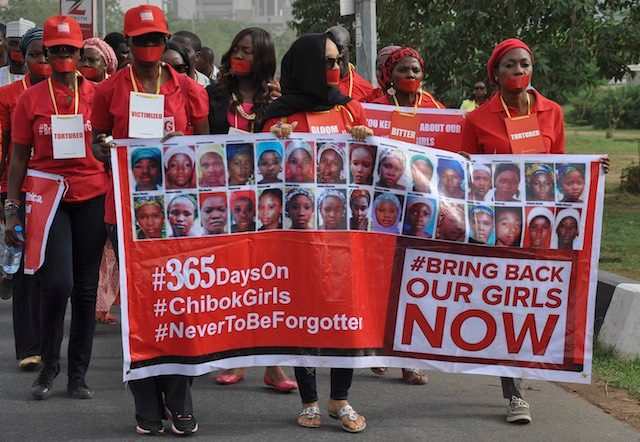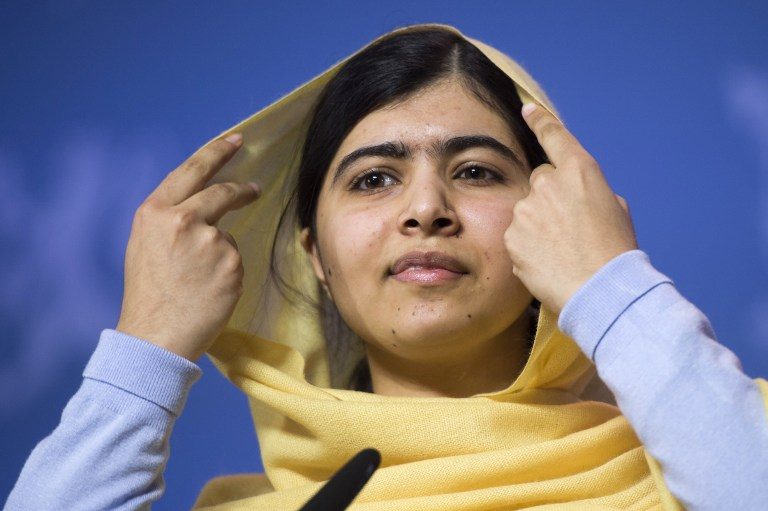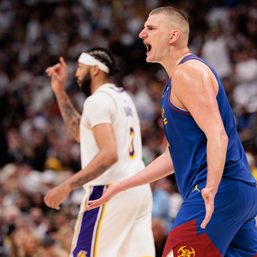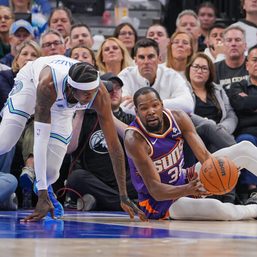SUMMARY
This is AI generated summarization, which may have errors. For context, always refer to the full article.

LAGOS, Nigeria (UPDATED) – Nobel peace laureate Malala Yousafzai on Monday, April 13, criticized Nigerian and world leaders for failing to help free 219 schoolgirls kidnapped a year ago by Boko Haram militants.
“In my opinion, Nigerian leaders and the international community have not done enough to help you,” she said in a letter to the teenagers on the eve of the first anniversary of their abduction.
“They must do much more to help secure your release. I am among many people pressuring them to make sure you are freed,” she added, calling the girls “my brave sisters”.
Malala’s letter, which she said was “a message of solidarity love and hope”, comes as events, including marches, prayers and vigils, were being held to mark the girls’ 12 months in captivity.
The United Nations Children’s Fund (UNICEF) on Monday said that 800,000 of the 1.5 million people displaced by Boko Haram violence were children.
More than 300 schools have been severely damaged or destroyed between January 2012 and December last year, with at least 196 teachers and 314 schoolchildren killed in that period, it added.
“Children have become deliberate targets, often subject to extreme violence – from sexual abuse and forced marriage to kidnappings and brutal killings,” it said in a report, “Missing Childhoods”.
Children had also become weapons of war, being forced to fight alongside the militants and also used as human bombs, it added.
At a UNICEF-run camp in Baga Sola, across the border in Chad, AFP recently saw stark and haunting images drawn by children of the violence, including bloody faces, headless bodies and burnt houses.
“They draw and then we can talk about the pictures. We have to push them to open up. It wasn’t easy at first, but now they’re proud to be heard,” said organiser Ndorum Ndoki.
‘Reasons for hope’

Boko Haram kidnapped 276 girls from their school in the remote town of Chibok, in Borno state, northeastern Nigeria, on the evening of April 14 last year.
57 managed to escape soon afterwards but the remainder have not been seen since an appearance in a Boko Haram video in May last year.
Boko Haram leader Abubakar Shekau has claimed they have all converted to Islam and been “married off”.
Nigeria’s President Goodluck Jonathan and his government were heavily criticized for their response to the kidnapping but Malala said there were now “reasons for hope and optimism”.
“Nigerian forces are re-gaining territory and protecting more schools,” she wrote.
“Nigeria’s newly elected president, Muhammadu Buhari, has vowed to make securing your freedom a top priority and promised his government will not tolerate violence against women and girls.”
Malala, 17, also wrote of her own experiences at the hands of militants in her native Pakistan. She was shot and nearly killed by the Taliban in October 2012 for insisting that girls had a right to an education.
She recovered and became a global champion of girls’ rights to go to school.
A fund set up in her name would ensure the girls will continue their education after their release, she said, urging them not to give up hope.
“I look forward to the day I can hug each one of you, pray with you and celebrate your freedom with your families. Until then, stay strong and never lose hope. You are my heroes,” she added. – Rappler.com
Add a comment
How does this make you feel?





There are no comments yet. Add your comment to start the conversation.